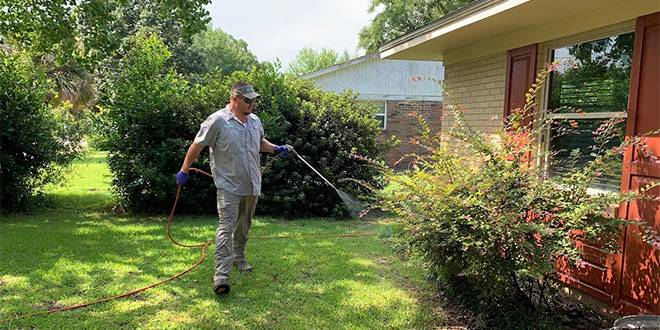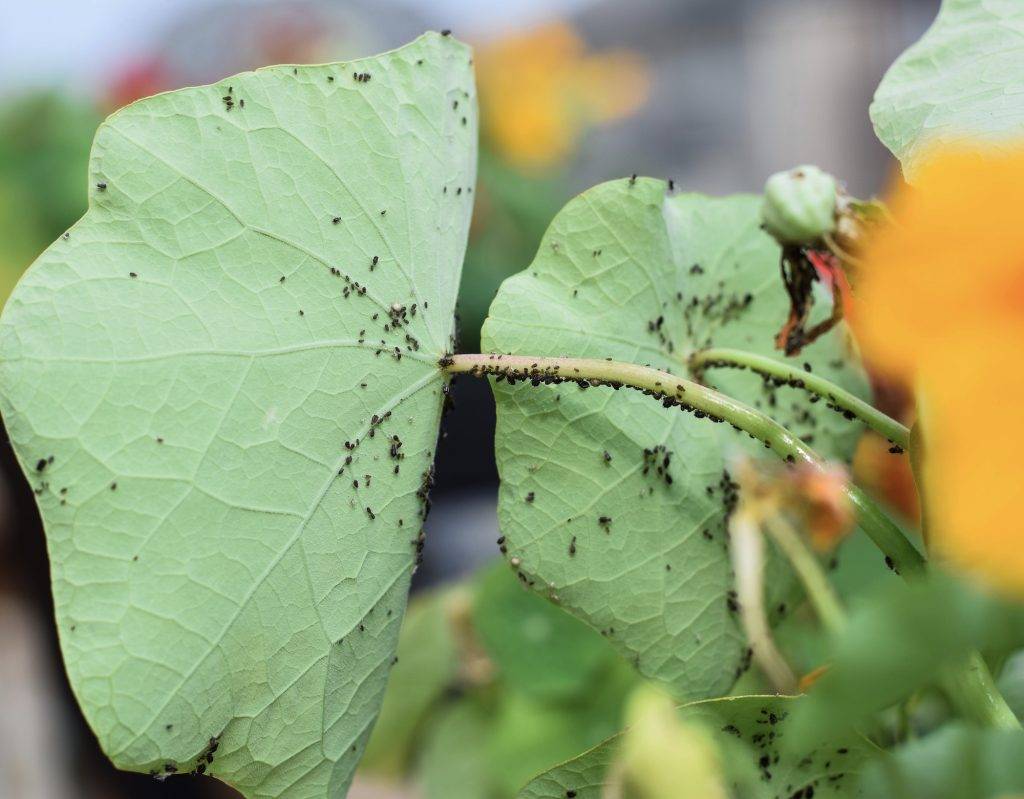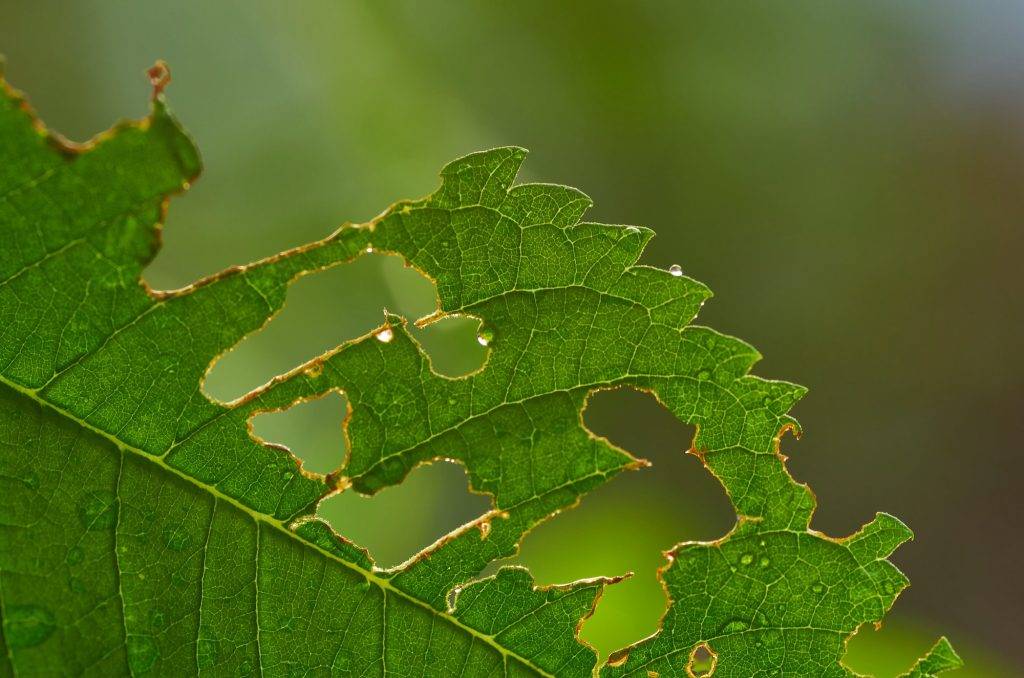
A healthy, thriving garden is a source of pride and joy for homeowners. However, keeping pests at bay can be a challenge, especially when you want to maintain a natural and environmentally friendly landscape. Using natural pest control solutions not only helps protect your plants but also promotes a balanced ecosystem that supports beneficial insects and wildlife.
Natural pest control involves using non-toxic methods to manage and prevent pest infestations in your garden. By understanding the types of pests you are dealing with and implementing effective strategies, you can enjoy a beautiful garden without resorting to harmful chemicals.
Key Points Covered
- Understanding Common Garden Pests
- Natural Pest Control Methods
- Benefits of a Pest-Free Garden
- How to Promote a Healthy Garden Ecosystem
- DIY Pest Control Recipes
- Common Mistakes and How to Avoid Them
- Interactive Quiz: Is Your Garden Pest-Free?
- How Paramount Pest Solutions Can Help
Glossary of Terms
- Companion Planting: Growing certain plants together to repel pests or enhance growth.
- Beneficial Insects: Insects that help control pest populations, such as ladybugs and lacewings.
- Organic Mulch: Natural materials spread over soil to conserve moisture and suppress weeds.
- Neem Oil: A natural pesticide derived from the seeds of the neem tree, used to control a variety of pests.
- Integrated Pest Management (IPM): A holistic approach to pest control that combines various techniques to minimize pest damage.
Understanding Common Garden Pests
Garden pests come in various forms, from insects and mites to larger animals like rodents and deer. Here are some common garden pests and how they can affect your plants:
- Aphids: These small, soft-bodied insects feed on plant sap, causing distorted growth and weakening plants. They reproduce quickly and can be found on a variety of plants, especially new growth.
- Caterpillars: The larvae of moths and butterflies, caterpillars can devour leaves and stems, leading to defoliation and stunted growth. Different species target different plants, including vegetables and ornamentals.
- Slugs and Snails: These mollusks feed on foliage and fruits, leaving behind irregular holes and slimy trails. They are most active during wet or humid conditions and can quickly damage seedlings and tender plants.
- Whiteflies: Tiny, white-winged insects that suck sap from the undersides of leaves, causing yellowing and weakening of the plant. They are often found on vegetables, ornamentals, and houseplants.
- Spider Mites: These tiny arachnids feed on plant cells, causing stippling, discoloration, and webbing on leaves. They thrive in hot, dry conditions and can rapidly infest a wide range of plants.
Understanding the specific pests that threaten your garden is the first step in developing an effective pest control plan. Regular monitoring and early detection are crucial for managing pest populations before they cause significant damage.

Natural Pest Control Methods
Implementing natural pest control methods can effectively manage pests while preserving the health of your garden and the surrounding environment. Here are some strategies to consider:
- Companion Planting: Planting certain species together can naturally deter pests and improve plant health. For example, marigolds can repel nematodes, while basil can deter flies and mosquitoes. Research and implement companion planting combinations that suit your garden’s needs.
- Beneficial Insects: Introduce beneficial insects such as ladybugs, lacewings, and predatory beetles to your garden. These natural predators feed on common pests like aphids and caterpillars. You can attract these insects by planting nectar-rich flowers and providing habitat.
- Organic Mulch: Apply organic mulch, such as straw, wood chips, or compost, to suppress weeds, retain moisture, and create a barrier against pests. Mulch can also improve soil health and support beneficial microorganisms that help control pest populations.
- Neem Oil and Insecticidal Soaps: Use neem oil or insecticidal soaps to control soft-bodied insects like aphids, whiteflies, and spider mites. These natural pesticides disrupt pests’ life cycles and minimize harm to beneficial insects. Apply these products according to label instructions for best results.
- Physical Barriers: Use row covers, nets, or floating row covers to protect plants from pests like caterpillars and birds. These barriers can prevent pests from reaching your plants while allowing sunlight and water to pass through. Regularly check and adjust barriers to ensure effective protection.
- Handpicking and Traps: For larger pests like slugs and snails, handpicking can be an effective control method. Set traps using beer or citrus rinds to lure and capture these pests. Regularly inspect your garden and remove any visible pests to prevent infestations.
- Healthy Soil Practices: Maintain healthy soil by adding organic matter and practicing crop rotation. Healthy soil supports strong plant growth, making plants more resilient to pest attacks. Test your soil regularly to ensure optimal nutrient levels and pH balance.
Benefits of a Pest-Free Garden
A pest-free garden offers numerous benefits beyond the obvious aesthetic appeal:
- Healthier Plants: By minimizing pest damage, your plants can grow stronger and produce more abundant flowers and fruits. Healthy plants are better able to resist diseases and environmental stressors.
- Increased Biodiversity: A natural pest control approach encourages a diverse ecosystem of beneficial insects and wildlife that contribute to a balanced environment. Biodiversity supports pollination and helps regulate pest populations.
- Reduced Chemical Use: Natural solutions reduce the need for chemical pesticides, promoting a safer environment for your family, pets, and beneficial organisms. This approach also reduces the risk of pesticide resistance in pest populations.
- Sustainability: A healthy, pest-free garden is more sustainable in the long term, as it requires fewer inputs and interventions. Sustainable gardening practices conserve resources and support ecosystem health.

How to Promote a Healthy Garden Ecosystem
Creating a thriving garden ecosystem requires a holistic approach that combines various strategies for pest control and plant health:
- Diverse Plantings: Cultivate a variety of plant species to attract beneficial insects and create a balanced ecosystem. Diversity reduces the likelihood of pest outbreaks and enhances resilience to environmental changes.
- Water Management: Water your garden efficiently to avoid overwatering and reduce conditions that favor pest development. Use drip irrigation or soaker hoses to deliver water directly to the roots and minimize wet foliage.
- Regular Monitoring: Regularly inspect your garden for signs of pests and disease. Early detection allows for timely intervention and prevents minor issues from becoming major problems.
- Seasonal Cleanup: Remove dead plant material and debris to eliminate potential pest habitats. Clean up your garden at the end of each season to prevent overwintering pests and diseases.
- Habitat for Beneficials: Provide habitat for beneficial insects by incorporating features such as hedgerows, insect hotels, and water sources. These elements support a diverse community of natural pest predators.
By fostering a healthy garden ecosystem, you can reduce the impact of pests and create a vibrant, productive landscape.
DIY Pest Control Recipes
Creating your own natural pest control solutions can be an effective and eco-friendly way to manage pests in your garden. Here are some easy-to-make recipes using common household ingredients:
1. Garlic Spray
Ingredients:
- 2 bulbs of garlic
- 1 tablespoon of liquid soap
- 1 liter of water
Instructions:
- Peel and crush the garlic bulbs, then mix them with the water in a blender.
- Let the mixture sit overnight to infuse.
- Strain the liquid and add the liquid soap.
- Pour the mixture into a spray bottle and apply it to plants to deter aphids, caterpillars, and other soft-bodied insects.
2. Neem Oil Spray
Ingredients:
- 2 teaspoons of neem oil
- 1 teaspoon of liquid soap
- 1 liter of warm water
Instructions:
- Mix the neem oil and liquid soap with warm water.
- Pour the solution into a spray bottle.
- Shake well and spray on affected plants, focusing on the undersides of leaves where pests like to hide.
3. Vinegar and Herb Spray
Ingredients:
- 1 cup of white vinegar
- 1 tablespoon of dried rosemary
- 1 tablespoon of dried mint
- 1 liter of water
Instructions:
- Boil the water and add the rosemary and mint.
- Let the herbs steep for 30 minutes, then strain the liquid.
- Add vinegar to the strained liquid and mix well.
- Pour into a spray bottle and apply to plants to deter ants and other crawling insects.
Common Mistakes and How to Avoid Them
When using natural pest control methods, it’s essential to be aware of common mistakes that can reduce their effectiveness. Here are some pitfalls to avoid:
1. Overusing Natural Pesticides
While natural pesticides are generally safer, overuse can still harm beneficial insects and disrupt the garden ecosystem. Use them sparingly and only when necessary.
2. Neglecting Plant Health
Healthy plants are more resistant to pests and diseases. Ensure your plants receive adequate water, nutrients, and sunlight to thrive and withstand pest pressures.
3. Inconsistent Application
Consistency is key to effective pest control. Apply natural remedies regularly and monitor your garden frequently to catch infestations early.
4. Ignoring Beneficial Insects
Not all insects are harmful. Avoid using broad-spectrum sprays that can kill beneficial insects along with
pests. Focus on targeted treatments and encourage natural predators.
5. Skipping Crop Rotation
Crop rotation helps prevent the buildup of soil-borne pests and diseases. Plan your garden layout each season to include diverse plantings and rotations.

Quiz: Is Your Garden Pest-Free?
Take this quick quiz to find out if your garden is pest-free or if you need to implement some natural solutions:
- Do you regularly inspect your plants for signs of pest damage?
- Yes / No
- Have you introduced beneficial insects to your garden?
- Yes / No
- Do you use natural pest control methods, such as companion planting or neem oil?
- Yes / No
- Is your garden free of standing water and debris?
- Yes / No
- Do you rotate crops and use healthy soil practices?
- Yes / No
Results:
- Mostly Yes: Your garden is likely well-protected from pests. Keep up the good work with regular monitoring and natural methods.
- Mostly No: Consider implementing more natural pest control strategies and improving garden maintenance to keep pests at bay.
Common Garden Pests and Natural Solutions
| Pest Type | Damage Caused | Natural Control Methods |
| Aphids | Sap-sucking, distorted growth | Ladybugs, neem oil, companion planting |
| Caterpillars | Leaf and stem damage | Handpicking, row covers, parasitic wasps |
| Slugs and Snails | Foliage and fruit damage | Beer traps, diatomaceous earth, handpicking |
| Whiteflies | Sap-sucking, yellowing leaves | Insecticidal soap, reflective mulches |
| Spider Mites | Stippling, leaf discoloration | Neem oil, predatory mites, horticultural oil |
Fun Facts About Garden Pests
- Aphid Alarm: When threatened, some aphid species release a chemical that warns others of danger, causing them to drop off the plant and seek safety.
- Slug Slime: Slug slime contains compounds that can protect them from bacteria and fungi, making it both a defensive and protective mechanism.
- Caterpillar Mimicry: Some caterpillars have evolved to resemble bird droppings, a form of mimicry that helps them avoid predators.
- Ladybug Appetite: A single ladybug can consume up to 5,000 aphids in its lifetime, making them valuable allies in pest control.
- Spider Mite Silk: Spider mites produce silk webbing to protect themselves from predators and environmental stressors.

Enhance Your Garden with Paramount Pest Solutions
Creating a pest-free garden with natural solutions is essential for maintaining a healthy and sustainable landscape. Paramount Pest Solutions offers expert advice and services to help you manage garden pests effectively and sustainably. Our team of experienced professionals is committed to helping you achieve a vibrant and productive garden. Don’t let pests disrupt your gardening efforts—contact us today to schedule a consultation and learn more about our services.
Paramount Pest Solutions is proud to serve Gulfport, Biloxi, Ocean Springs, Pascagoula, D’Iberville, and surrounding areas. Visit our Service Areas page to learn more about the communities we serve and how we can assist you.
